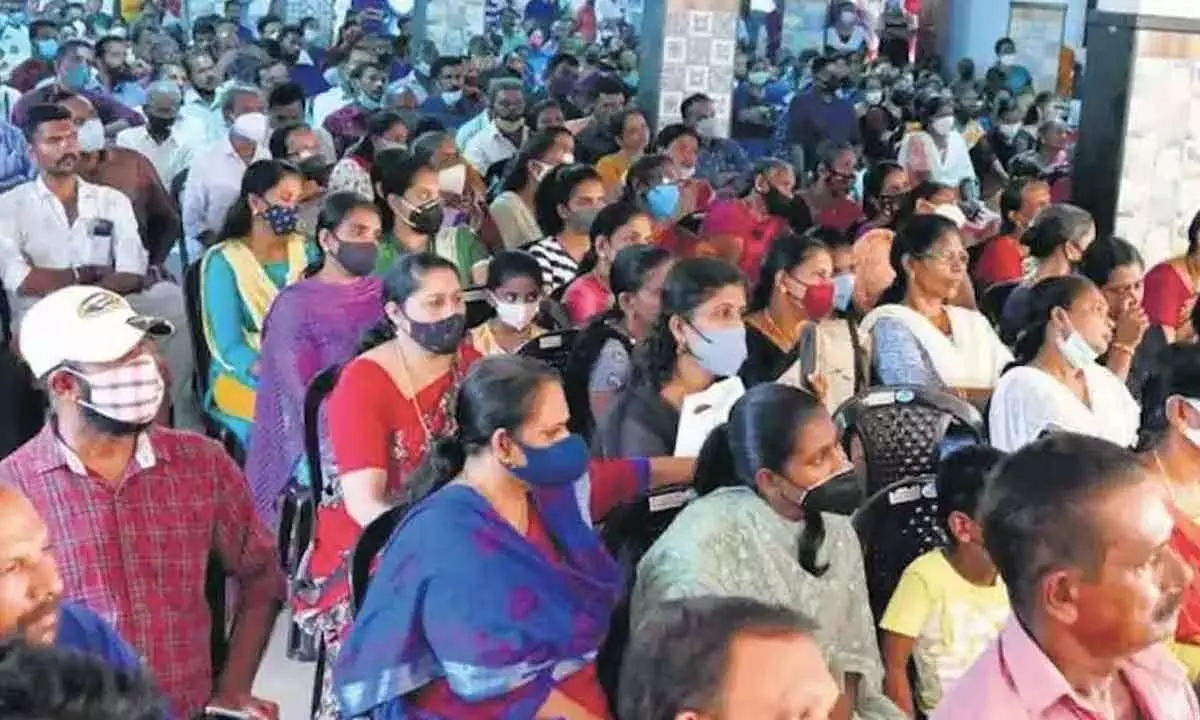Live
- CM Revanth to Review Projects with Senior Officials Today
- Fix Ozone Layer Depletion
- Harish Rao to Visit Medak Today for Centenary Celebrations
- Irregularities in TUDA under vigilance scanner
- ‘Pushpa-2’ row: Celebs & politicos fail to act fairly
- Learn from fighting spirit of women bravehearts: VHP VP
- BJP MP Arvind, MLA Sanjay Kumar meet CM Revanth
- Rapido partners with L&TMRHL to provide discounted rates
- Kisan Diwas 2024: A Day Dedicated to honor our Farmers.
- Axed ACP takes the wind out of Pushpa hero’s sails
Just In
Christian Groups Seek Parliamentary Intervention In Kerala Waqf Land Dispute


- Syro-Malabar Church and Kerala Catholic Bishop Council appeal to Joint Parliamentary Committee over Waqf Board's land claims in Cherai, affecting 610 families in Kochi.
- Union Minister Kiren Rijiju acknowledged the issue on social media, assuring that the grievances would be addressed and expressing confidence in the JPC's handling of the matter.
Major Christian organizations in Kerala have raised concerns with the Joint Parliamentary Committee (JPC) regarding the Waqf (Amendment) Bill 2024, highlighting a pressing land dispute in Cherai, a fishing village near Kochi. The Syro-Malabar Church and the Kerala Catholic Bishop Council (KCBC) have voiced their apprehensions about the Waqf Board's claims on properties belonging to over 600 Christian families in the region.
Union Minister Kiren Rijiju acknowledged the issue on social media, assuring that the grievances would be addressed and expressing confidence in the JPC's handling of the matter. The minister noted that the Waqf land issue affects various communities and empathized with the Christian leaders' concerns.
In their submissions to the JPC, both church organizations detailed the plight of families in Cherai and Munambam areas of Ernakulam district. Archbishop Andrews Thazath of the Syro-Malabar Church emphasized that properties held by Christian families for generations are now being "illegally" claimed by the Waqf Board, leading to legal battles and potential displacement of rightful owners.
Cardinal Baselios Cleemis, President of the KCBC, echoed these concerns, specifically mentioning the threat to over 600 families in Munambam Beach. Both leaders urged the JPC to consider the far-reaching implications of the Waqf Board's claims, not just in Kerala but across the country.
The dispute traces back to 1902 when the land was reportedly purchased by Siddique Sait and later donated to Feroke College in 1950. A 1975 High Court ruling favored the college in a dispute with local fishermen. Villagers began purchasing land from the college in 1989. However, in 2022, the village office unexpectedly declared the land as Waqf property, denying residents' revenue rights and restricting property transactions.
This situation highlights the complex interplay between historical land ownership, community rights, and religious endowments in India. As the JPC reviews the Waqf (Amendment) Bill 2024, the outcome could have significant implications for land rights and community relations in Kerala and beyond.

© 2024 Hyderabad Media House Limited/The Hans India. All rights reserved. Powered by hocalwire.com






